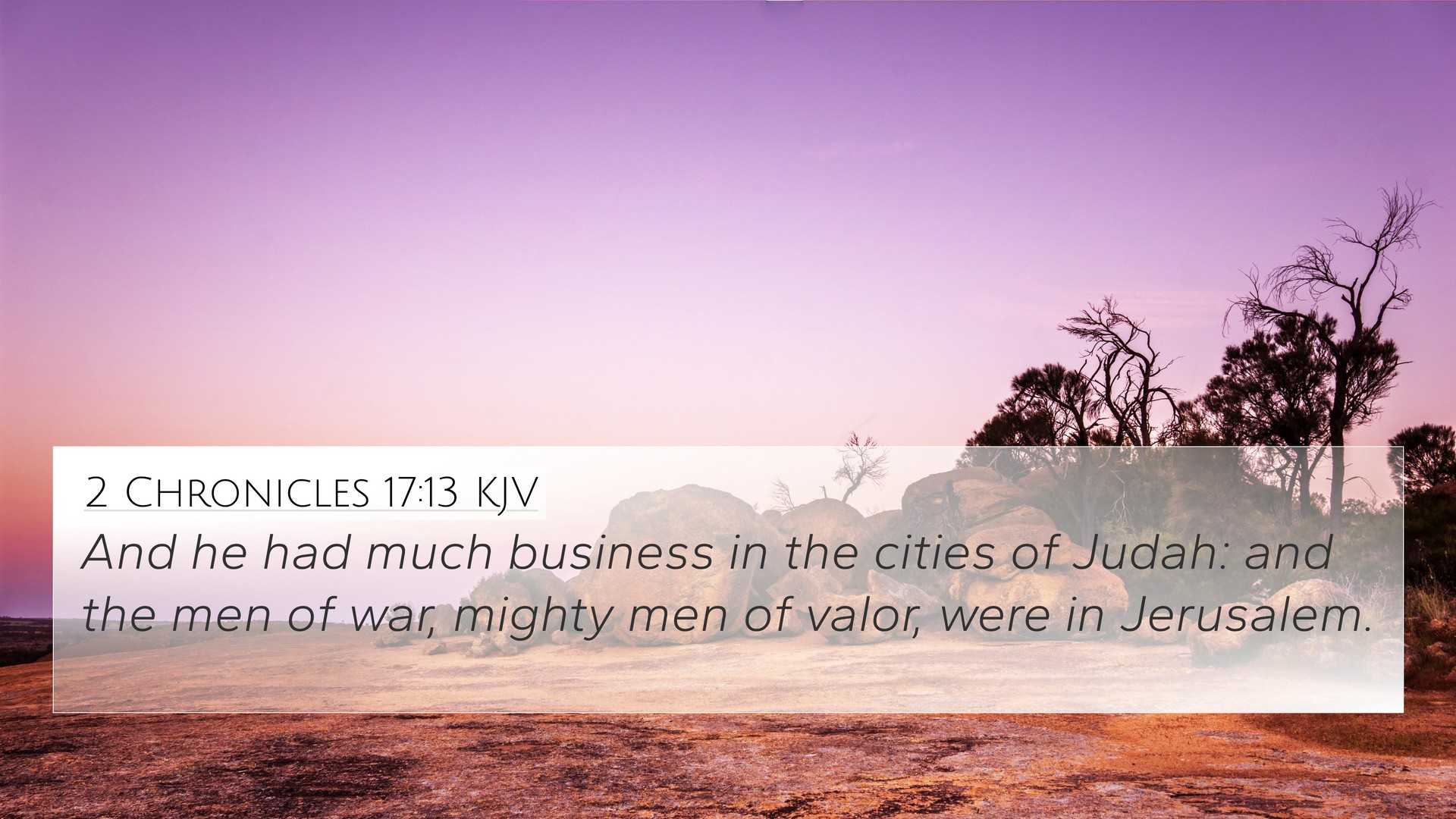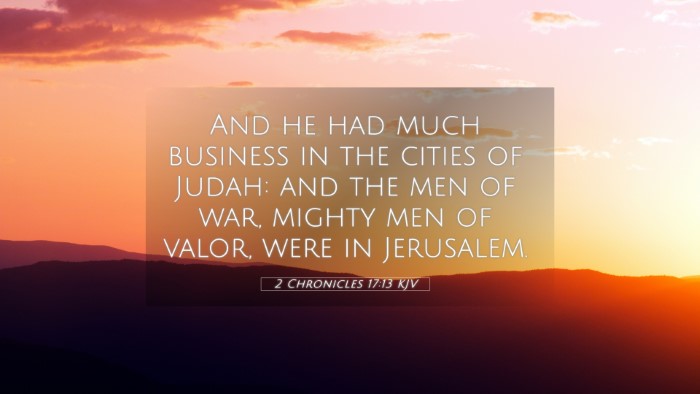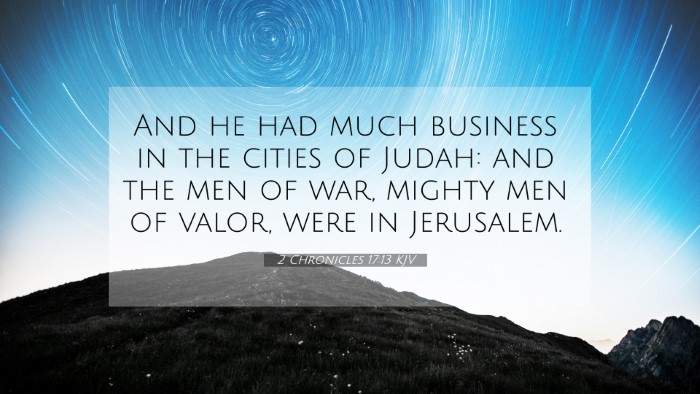Understanding 2 Chronicles 17:13
The verse 2 Chronicles 17:13 states:
"And he had much business in the cities of Judah: and the men of war, mighty men of valour, were in Jerusalem."
Overview of the Verse
This passage describes the activities of Jehoshaphat, the king of Judah, during his reign. It highlights the significant military and administrative efforts he undertook to fortify his kingdom and maintain order, showcasing his leadership qualities.
Commentary Insights
Matthew Henry’s Commentary
Matthew Henry underscores that Jehoshaphat's administration focused on establishing a strong governance in Judah. His commitment to justice and righteousness was evident in his actions, which included appointing judges throughout the land to ensure fair trials. Henry emphasizes that the presence of mighty men in Jerusalem suggests a state of readiness and strength, highlighting the importance of military preparedness for the security of the nation.
Albert Barnes’ Commentary
Albert Barnes elaborates on the idea that Jehoshaphat's success as a ruler was attributed to his dedication to the worship of God. He interprets the verse as indicative of stability and organization within Judah. Barnes notes that the "mighty men of valour" are a necessary part of a kingdom’s defense, suggesting that Jehoshaphat's reign was characterized by both spiritual and physical fortification.
Adam Clarke’s Commentary
Adam Clarke highlights the strategic nature of Jehoshaphat's reign, wherein he not only focused on military prowess but also on administrative control. Clarke points out that the cities of Judah were heavily fortified, allowing the king to stabilize his kingdom and prevent potential invasions. The reference to “much business” indicates active governance, involving both civil and military affairs.
Key Themes and Connections
This verse illustrates several key themes in the Bible, including:
- Leadership and Governance: The responsibilities of a leader in ensuring justice and security.
- Military Preparedness: The importance of having a strong defense for the protection of the nation.
- Divine Favor: Strong leadership attributed to the king's devotion to God.
Cross-References
Connecting this verse to other Scriptures, we find several related passages that echo its themes:
- 2 Chronicles 19:5-7: Jehoshaphat appointing judges throughout the land, emphasizing justice.
- 1 Kings 22:44: The mention of Jehoshaphat's military alliances and strategies.
- Psalm 20:7: The reliance on God for victory in battles.
- 2 Chronicles 20:1-15: God's guidance during warfare under Jehoshaphat.
- Proverbs 21:31: The importance of preparation in securing victory.
- Isaiah 33:22: The concept of God as a lawgiver and judge.
- Hebrews 11:32-34: The mention of warriors of faith, tying into the valor concept.
- 1 Samuel 15:22: The importance of obedience to God over sacrifice.
- Micah 4:2: The prophecy of nations flowing to Zion, emphasizing security and peace.
Theological Implications
The verse invites readers to reflect on the traits of effective leadership, the necessity of military and civil order, and the critical role of divine guidance in earthly affairs. Jehoshaphat’s reign stands as a model for leaders today, underlining the importance of morality, justice, and strength.
Conclusion
In summary, 2 Chronicles 17:13 not only documents a historical moment in Judah's history but also serves as a theological teaching on the essence of righteous leadership and the elements required to ensure a nation's stability. By effectively cross-referencing this verse with others, believers can deepen their understanding of God’s enduring principles as demonstrated through biblical history.




